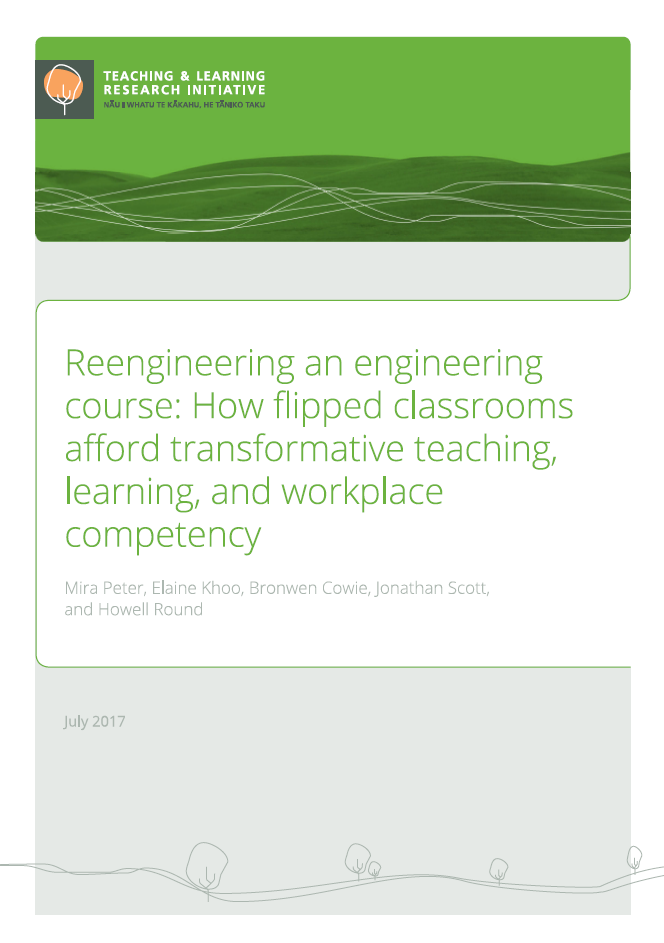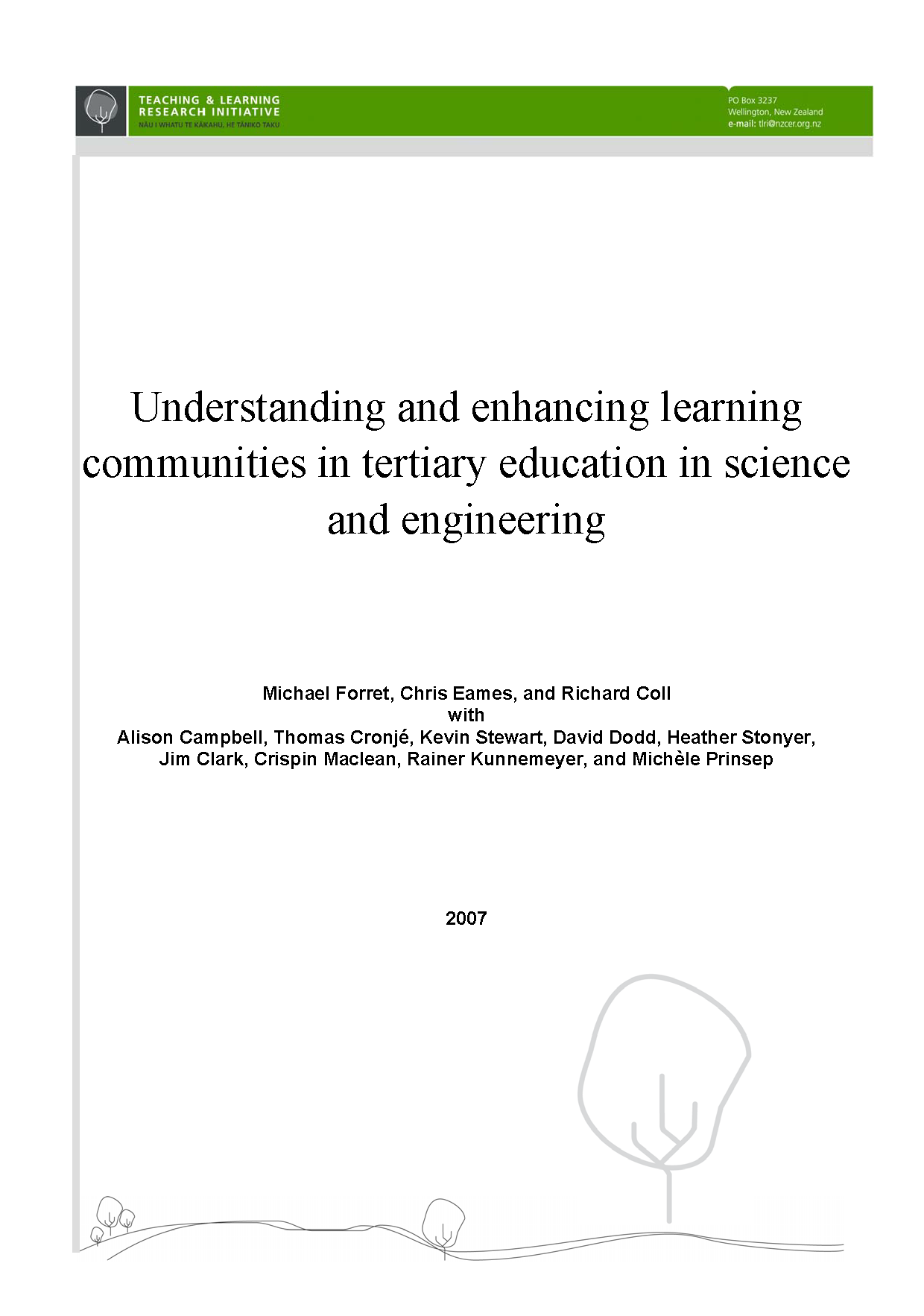
Reengineering an engineering course: How flipped classrooms afford transformative teaching, learning, and workplace competency
Introduction Successful engineering graduates need to understand engineering principles and practices and be able to work in teams, to communicate well, and to work in contexts that can be risky and uncertain (Adamson & DarlingHammond, 2012; Meier, Williams, & Humphreys, 2000). Current trends in engineering education call for the development of students’ technical and non-technical skills (Male, 2010). Thus, it is crucial that tertiary educators develop curricula that enable students to develop these capacities and to enhance their employability and contribution to a country’s economic competitiveness and societal wellbeing (Ministry of Education and the Ministry of Business, Innovation and Employment, 2014). This project extends our previous research on the effectiveness of


